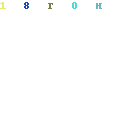WHAT IS AN ESTATE?
- An Estate is comprised of the real and personal properties of a decedent.
- A life insurance policy or a pre-need plan or a mutual fund placement is considered personal property.
WHEN IS THE SETTLEMENT OF AN ESTATE REQUIRED? The settlement of an estate is required by Sun Life under the following circumstances:
- The beneficiary who will receive the proceeds under a life insurance policy or pre-need plan is an Estate.
- The owner of the life insurance policy or pre-need plan or mutual fund placement has become an Estate and needs to transact business with the company.
HOW IS AN ESTATE SETTLED? An Estate may be settled judicially or extra judicially:
I. EXTRAJUDICIAL SETTLEMENT.


- “Extrajudicial” means “outside of court.”
- The heirs do not have to go to court to partition the properties left
- by the decedent.
- There are two (2) kinds of extrajudicial settlement:
A. COMMON REQUIREMENTS FOR AN EXTRAJUDICIAL SETTLEMENT TO BE VALID:
- The decedent died intestate, i.e., without a valid will;
- The estate has no outstanding debts at the time of the extrajudicial settlement;
- The heir/s are all of age, or the minor heirs are represented by their judicial guardians or legal representatives;
- The extrajudicial settlement is made in a public instrument, stipulation or affidavit duly filed with the Register of Deeds;
- The fact of such extrajudicial settlement must be published in a newspaper of general circulation once a week for three (3) consecutive weeks; and
- The parties to the extrajudicial settlement shall file a bond with the Register of Deeds in an amount equivalent to the value of the personal property involved.
This bond should be filed simultaneously with the extrajudicial settlement instrument(document). Such bond will answer for the payment of any just claim at any time within two (2) years after the settlement and distribution of an estate.
B. WHO MAY EXECUTE AN EXTRAJUDICIAL SETTLEMENT?


- THE SOLE HEIR. The one and only heir may adjudicate the entire estate to himself by means of an affidavit (called an “Affidavit of Self-Adjudication”) filed in the Register of Deeds of the place where the decedent resided.
- THE HEIRS* AGREEING AMONG THEMSELVES. The heirs may divide the estate among themselves by means of a notarized instrument filed in the Register of Deeds.
The steps to follow are:
a. Prepare a “Deed of Extrajudicial Settlement of Estate and Adjudication of Estate” to be signed by all of the which must contain the following information:
- That the decedent left no will;
- That the decedent left no debt;
- Each heir’s relationship to the decedent (e.g. spouse, son, daughter, father, mother etc.);
- That they are the decedent’s only surviving heirs;
- An enumeration and a brief description of the decedent‘s properties, both real and personal, which the heirs are now dividing among themselves. The decedent’s Sun Life Financial life insurance policy; pre-need plan number; or mutual fund.
* Heirs for purposes of the discussion on extrajudicial settlement, may refer to the following:
- if the deceased was single without children – surviving parents;
- if the deceased was single with children– legitimate and illegitimate children only;
- if the deceased was single with illegitimate children and surviving parents – surviving parents and illegitimate children only;
- if the deceased was married with children - legal spouse and illegitimate and legitimate children only; and
- if the deceased was married with illegitimate children – legitimate spouse, surviving parents and illegitimate children. Claimants are encouraged to seek the advice of their own legal counsel.
Placement certificate number must be specifically mentioned; and How the properties are to be divided among the heirs including a specific mention of who will assume ownership and/or all the benefits resulting from the Sun Life Financial life insurance policy; pre-need plan; or mutual fund placement.
b. Have the “Deed of Extrajudicial Settlement and Adjudication of Estate” notarized before a Notary Public after all the heirs have signed it.
c. Secure a bond from a reputable bonding company acceptable to the Register of Deeds. The amount of the bond is equivalent to the value of the personal property included in the extrajudicial settlement.
d. Register the notarized “Deed of Extrajudicial Settlement and Adjudication of Estate” with the Register of Deeds. The bond is simultaneously filed with the “Deed of Extrajudicial Settlement and Adjudication of Estate”.
e. Publish the “Deed of Extrajudicial Settlement and Adjudication of Estate” in a newspaper of general circulation once a week for three (3) consecutive weeks.
II. JUDICIAL SETTLEMENT OF ESTATE.
There are times when resort to court is unavoidable, particularly when the deceased left a will or debts and/or the heirs are in dispute.

A. COMMON REQUIREMENTS FOR JUDICIAL SETTLEMENT:
- By means of a petition filed in court.
- Where filed?
- If the decedent was a resident of the Philippines at the time of his death, the petition must be filed before the Regional Trial Court in the place where he resided at the time of his death.
- If the decedent was a resident of a foreign country at the time of his death, the petition must be filed in any Regional Trial Court in the province where he had estate.
required to be published in a newspaper of general circulation once a week for three consecutive weeks.
B. WHEN IS THERE A JUDICIAL SETTLEMENT?
- SUMMARY SETTLEMENT OF ESTATES OF SMALL VALUE. An estate of small value is worth Ten Thousand Pesos or less, regardless of whether or not the decedent left a will.
The steps to follow are:
- File a petition in court alleging that the estate is of small value.
- Publish a notice of the settlement proceedings in a newspaper of general circulation once a week for three (3) consecutive weeks.
- After completion of publication, the court may set the case for hearing and proceed summarily to settle the estate.
2. PROBATE OF WILL. If the decedent left a will, such must be probated, i.e., allowed or disallowed.
The steps to follow are:
- File a petition in court praying for the probate of the will and settlement of estate of the decedent.
- The court will set a time and place for the probate and shall cause notice of such to be published in a newspaper of general circulation once a week for three (3) consecutive weeks.
- On the hearing date, the court will proceed with the probate of the will and distribute the estate to the heirs/legatees accordingly.
3. DECEDENT LEFT NO WILL. If the decedent left no will, the steps are the same as the above, except that the petition will pray for the settlement of the estate of the decedent.
Sponsors
Follow @IRPeXPh































